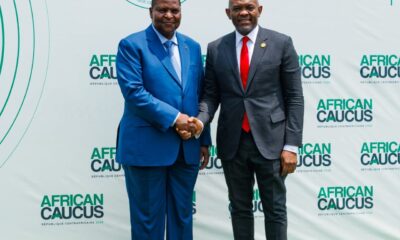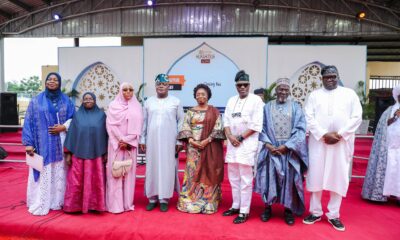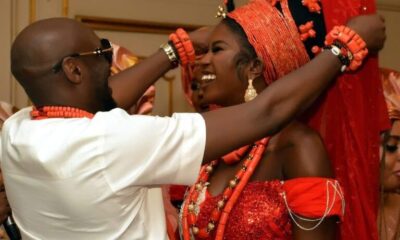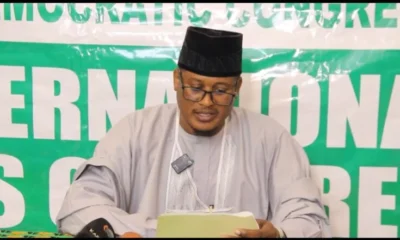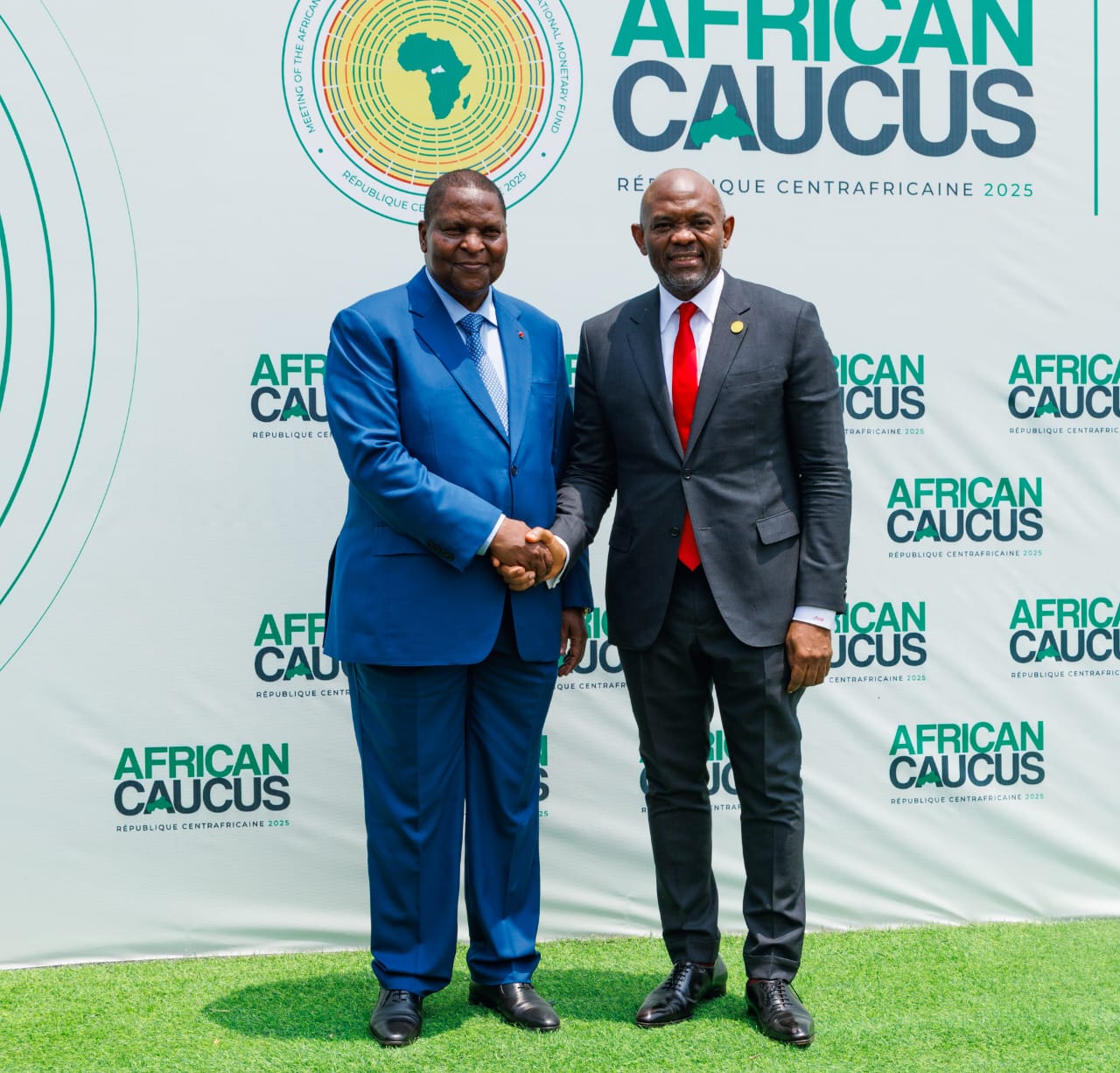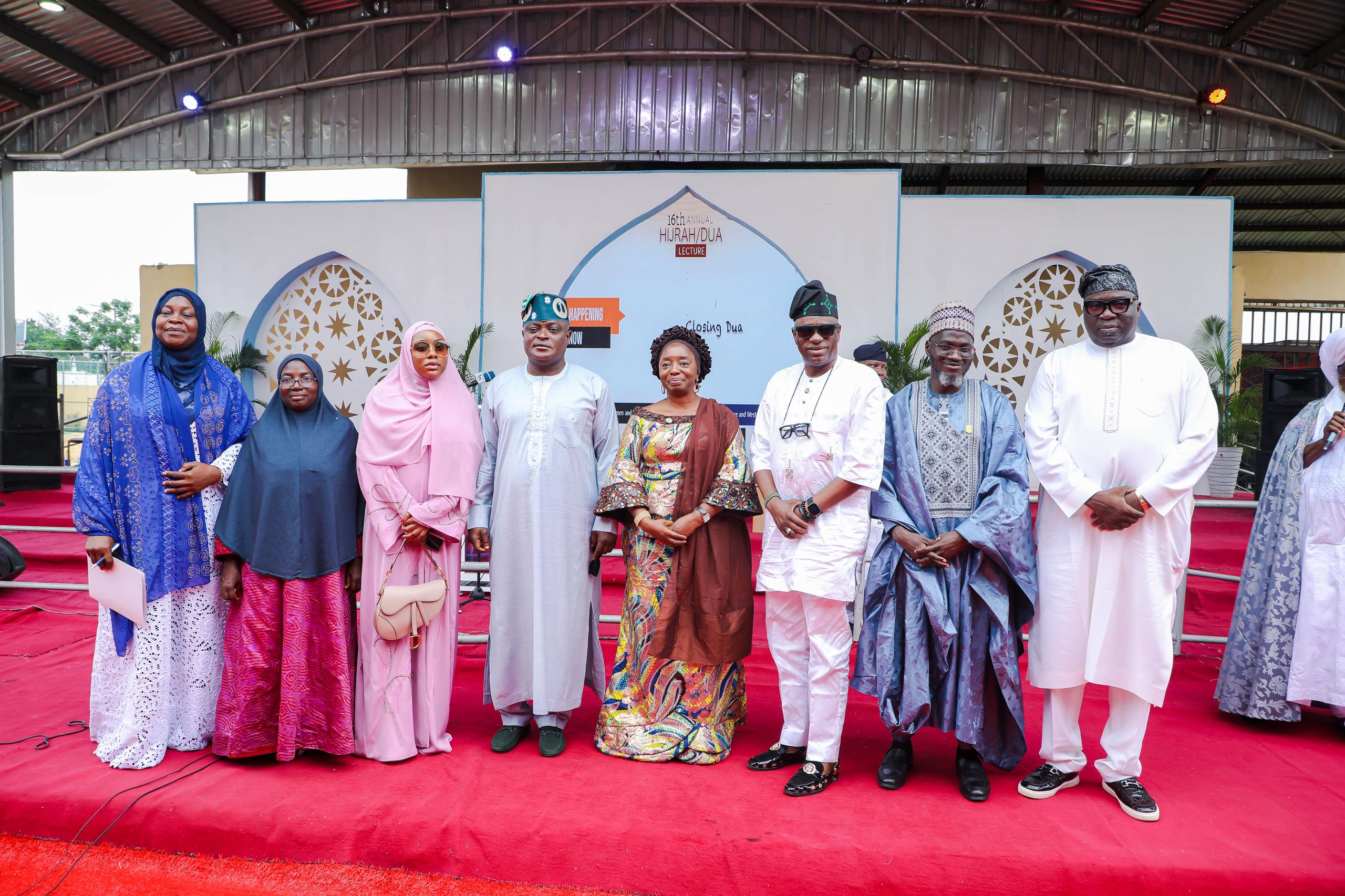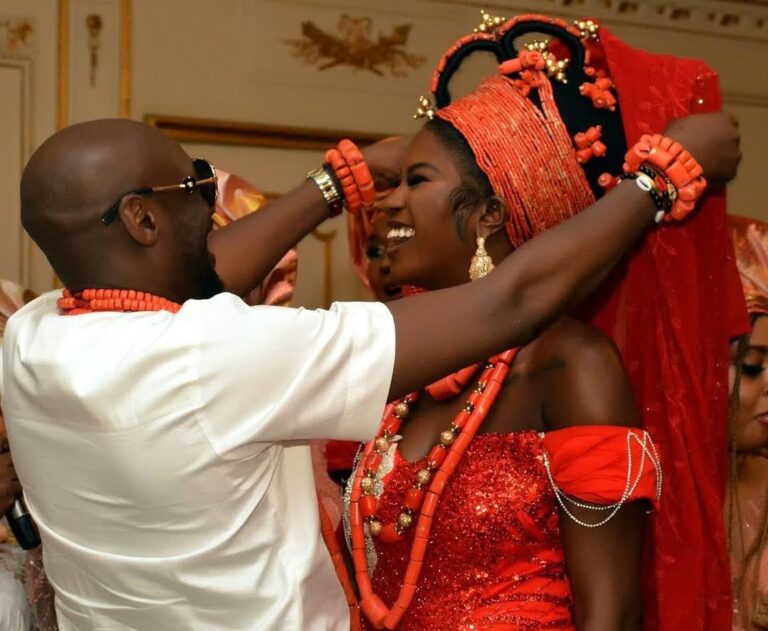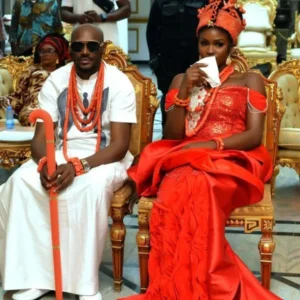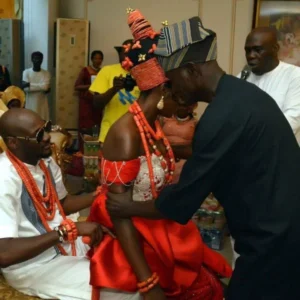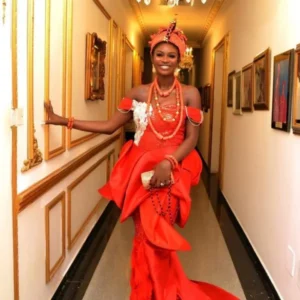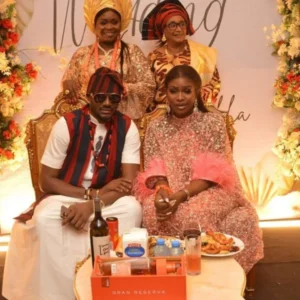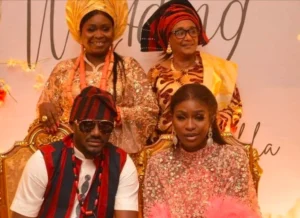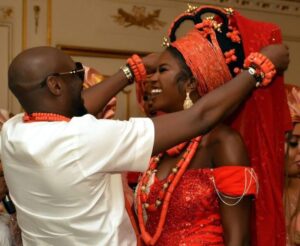Tony Elumelu, Group Chairman of Heirs Holdings, UBA, and Transcorp, and Founder of the Tony Elumelu Foundation, has called for urgent and strategic investment in infrastructure, energy, and youth empowerment to unlock Africa’s full potential.
Delivering the keynote address at the African Caucus Meeting of the World Bank and IMF in Bangui, Central African Republic, Elumelu emphasised that Africa’s development must be driven by Africans, anchored on partnerships built on mutual respect, and powered by the continent’s greatest assets — its people, resources, and entrepreneurial spirit.
Theme:
‘Resilient Infrastructure, Human Capital, and Green Assets’
Keynote Address delivered by
Tony O. Elumelu, CFR
Group Chair, Heirs Holdings | UBA | Transcorp | Founder, The Tony Elumelu Foundation
At the African Caucus Meeting In Bangui Central African Republic
July 31, 2025
Introduction
Your Excellencies, Ministers, Central Bank Governors, esteemed representatives of the IMF & World Bank, Distinguished Guests, Ladies and Gentlemen
It is truly an honour to be here with you today. This gathering could not be timelier, as we work together to amplify Africa’s voice and shape a development path that reflects our unique needs and aspirations.
We live in a highly volatile, complex world. It is a world where the rules-based order has been challenged, where we need to reaffirm our commitment to the idea of a global community.
But as an African, I must be frank. This global community has not always served Africa interests, ensured that Africa’s voice is heard or delivered for Africa.
And Africa’s voice not only needs to be heard, but has to be heard.
Africa has solutions to so many of the world’s problems. Our young people are the answer to the world’s demographic crisis, our minerals power the extraordinary technological changes we are experiencing, our fields can feed the world.
But these African solutions, this African opportunity, must be on African terms, benefit African people, catalyse true value creation on the African continent. And it must be based on true partnerships, partnerships of equality and mutual respect.
We must also be realistic. African governments must do better. If we are to deliver that opportunity to our next generation – and if we are to be truly heard in the community of nations, Africa needs to step up.
This year’s theme – ‘Resilient Infrastructure, Human Capital, and Green Assets’ – reflects what must be our shared priorities if Africa is to thrive.
It captures the essence of what we must prioritise if Africa is to truly rise.
Africa’s Infrastructure Gap
Let me begin with infrastructure. Across our continent, we face a deep and persistent infrastructure gap. From roads to ports, power to internet connectivity – we lag behind. We cannot achieve prosperity without the foundations of modern development. Without addressing these gaps, we cannot unlock the growth and prosperity our people deserve.
To bridge this divide, we must do three things:
Strengthen our fiscal capacity.
Drive efficiency and
Unlock innovative financing – especially by inviting and enabling private sector to co-lead infrastructure development.
Powering Africa’s Future
Energy access remains the biggest enabler — or barrier — to our progress.
Up to 70% of our people lack electricity. My home country, Nigeria, generates less than 7,000 MW for over 200 million people.
If we are to industrialize, create jobs, and participate meaningfully in the global AI revolution, we must invest aggressively in energy — from renewables to cleaner gas-based solutions.
Imagine what Nigeria’s economy could become with 100,000 megawatts of reliable, affordable energy. That is the scale of transformation we need. And the story is not different across Africa.
The Role of the Private Sector
Through our investments in Transcorp and Heirs Energies, we are working to solve this challenge – generating power, exporting it through the West African Power Pool, and using gas from our oil operations to power our plants. This is Africapitalism in action: private capital solving public challenges.
Africapitalism is the belief that the African private sector must take the lead in driving economic development. It is about long-term investments in key sectors that create both economic returns and social impact.
But success requires collaboration.
To succeed, we need strong partnerships. Governments must create the right environment. Private sector must bring capital and innovation. And our development partners must support Africa’s realities – including recognising gas as a viable transition fuel on our path to clean energy.
Youth: Africa’s Greatest Resource
No resource is more valuable than our people – especially our youth. Africa is the youngest continent on earth, with over 60% of our population under 35. This presents both our greatest asset or our greatest risk.
If empowered, our youth can transform Africa. If neglected, they can become a source of instability.
At the Tony Elumelu Foundation:
We have empowered over 24,000 young entrepreneurs across all 54 African countries.
Each with a non-refundable seed capital of USD5,000.00.
Trained 1.5m youth.
Catalysed 1.2m jobs.
These entrepreneurs are creating jobs, building businesses, and changing lives.
Call to Action
Let me leave you with three massages:
Africa’s development is our responsibility. No one else will do it for us. Africa’s future is in our hands. No one will build this continent for us. We must lead.
Power is everything. No industrial revolution can happen without electricity. We must prioritise energy. Without power, there can be no progress.
We must invest in our youth. They are not just our future – they are our present.
Together, by working across public and private sectors, and in partnership with institutions like the IMF and World Bank, we can build an Africa that is resilient, inclusive, and full of opportunity.
I commend the growing focus of global institutions on Africa. I sit on the IMF Advisory Council on Entrepreneurship and Growth, and I’m pleased with our emphasis on job creation as a path to lasting growth. I also applaud Ajay Banga’s ‘Mission 300’ initiative at the World Bank – an ambitious goal to connect 300 million Africans to power.
Africa is ready. Let’s seize this moment – and build the prosperous, empowered continent our people deserve.
Thank you.
TOE

 BIG STORY4 days ago
BIG STORY4 days ago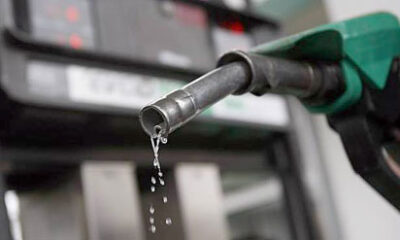
 BIG STORY2 days ago
BIG STORY2 days ago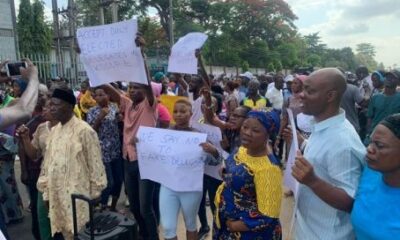
 BIG STORY4 days ago
BIG STORY4 days ago
 BIG STORY3 days ago
BIG STORY3 days ago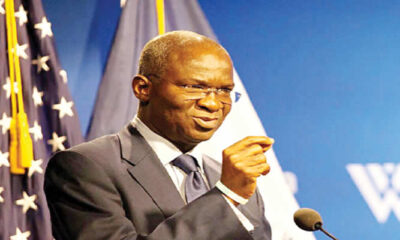
 BIG STORY2 days ago
BIG STORY2 days ago
 BIG STORY3 days ago
BIG STORY3 days ago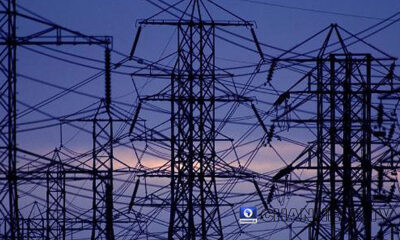
 BIG STORY4 days ago
BIG STORY4 days ago
 BIG STORY4 days ago
BIG STORY4 days ago







